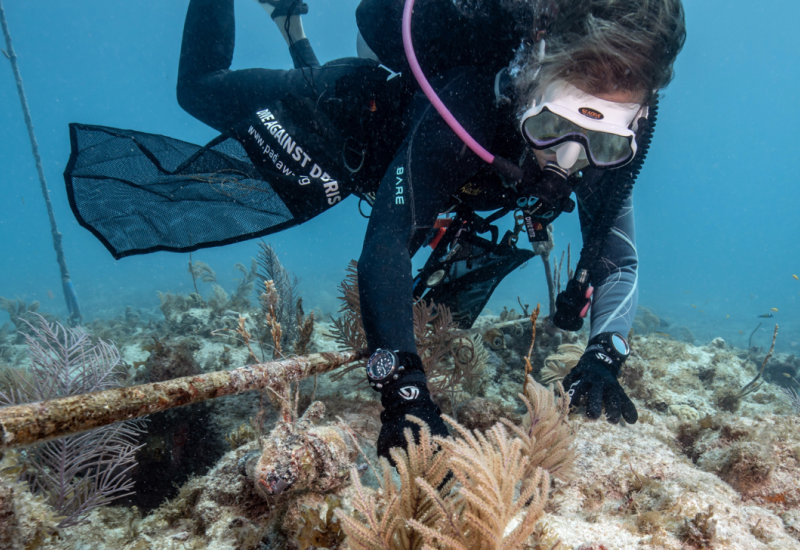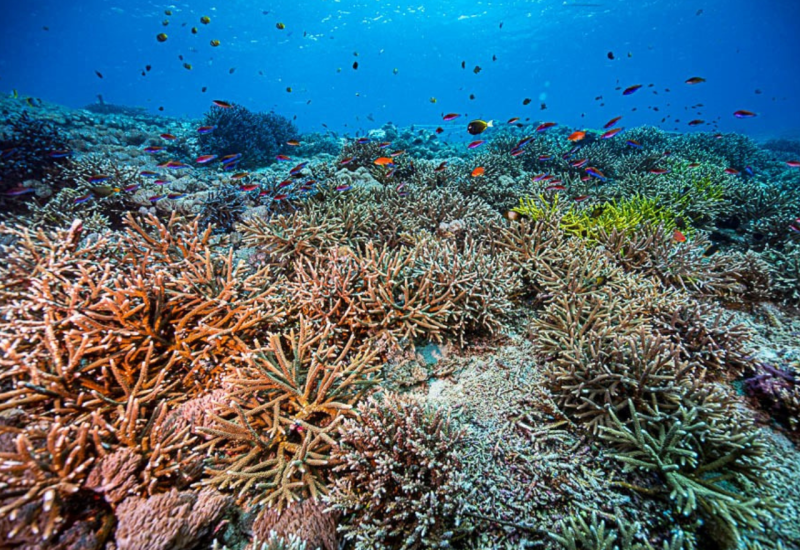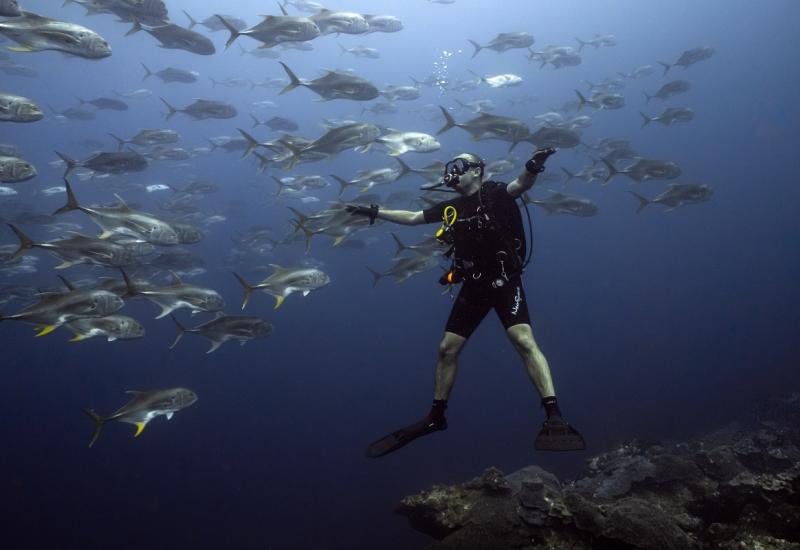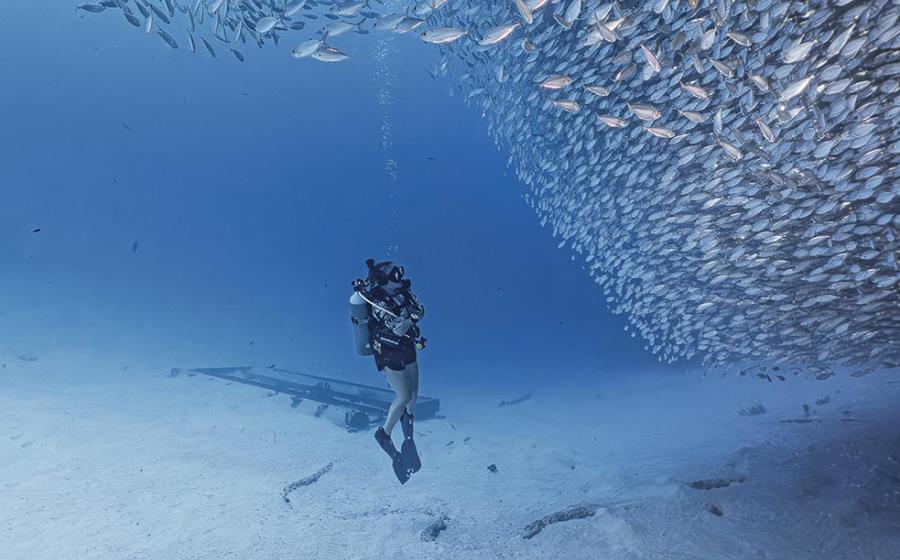Attacking Invasive Species: South Florida Lionfish Derby
By Jake Lamb
Lionfish have become more and more prevalent in Florida during the past few years, causing catastrophic decreases in the number of native fish species. This invasive species originated in the Pacific and Indian Oceans, where they have natural predators that keep them at bay.
Lionfish have no natural predators here in the Atlantic Ocean, so scuba divers must take action and become the predators that keep the lionfish in check.
To combat these unwelcomed guests, the company eBoat Listings is hosting a REEF-sanctioned lionfish tournament on Oct. 18, 2014 in Boynton Beach, Fla. The eBoat Listings Lionfish Tournament will be at Boynton Beach's Harvey E. Oyer Jr. Park. The competition begins at 8 a.m. when boats are allowed to leave the inlet, and at 3 p.m. the lionfish will be weighed back at the park.
Lionfish can out-breed and out-eat nearly all of our Florida native aquatic species. Lionfish can prey on species half their body length, and a lionfish's stomach can expand up to 30 times its original size during a feeding.
Lionfish have been shown to feed on more than 70 species of fish, consuming as many as 20 fish in a mere 30 minutes. Once sexual maturity is reached — and the fish is about seven inches in size — females release about 25,000 eggs every four days, which equates to more than 2 million eggs per year.
A study in 2012 of some heavily invaded sites in the Bahamas showed that lionfish reduced the standing biomass of their fish prey by an average of 65 percent, with some sites showing a 95 percent decline in just a three-year period. Obviously, at this rate, something must be done to control this invasion.
Further studies have shown that one of the most effective ways of controlling the lionfish population is harvesting by divers.
Awards, lionfish tastings and an after-party will also be held at the park immediately following weigh-in. The captains’ meeting will be held at the Old Key Lime House in Lantana, Fla., on Oct.16 at 6 p.m. To register for the tournament or for more information go here.
Any profits from the tournament will be donated to REEF to further help protect the reefs in South Florida, according to a press release sent out by eBoat Listings.
eBoat Listings is a South Florida based company that provides an online marketplace for buying and selling boats commission-free. REEF is a non-profit organization dedicated to protecting our reef ecosystems.

Courtesy of eBoat ListingsSee where eBoat Listings is hosting its Annual REEF-sanctioned Lionfish Derby Tournament.
By Jake Lamb
Lionfish have become more and more prevalent in Florida during the past few years, causing catastrophic decreases in the number of native fish species. This invasive species originated in the Pacific and Indian Oceans, where they have natural predators that keep them at bay.

ShutterstockDivers will get the chance to combat the species expansive growth at the eBoat Listings Annual REEF-sanctioned Lionfish Tournament.
Lionfish have no natural predators here in the Atlantic Ocean, so scuba divers must take action and become the predators that keep the lionfish in check.
To combat these unwelcomed guests, the company eBoat Listings is hosting a REEF-sanctioned lionfish tournament on Oct. 18, 2014 in Boynton Beach, Fla. The eBoat Listings Lionfish Tournament will be at Boynton Beach's Harvey E. Oyer Jr. Park. The competition begins at 8 a.m. when boats are allowed to leave the inlet, and at 3 p.m. the lionfish will be weighed back at the park.

ShutterstockThe stomach of a lionfish is capable of expanding up to 30 times its original size during feedings.
Lionfish can out-breed and out-eat nearly all of our Florida native aquatic species. Lionfish can prey on species half their body length, and a lionfish's stomach can expand up to 30 times its original size during a feeding.
Lionfish have been shown to feed on more than 70 species of fish, consuming as many as 20 fish in a mere 30 minutes. Once sexual maturity is reached — and the fish is about seven inches in size — females release about 25,000 eggs every four days, which equates to more than 2 million eggs per year.

Courtesy of eBoat ListingsSome of the lionfish that were caught in the 2013 tournament.
A study in 2012 of some heavily invaded sites in the Bahamas showed that lionfish reduced the standing biomass of their fish prey by an average of 65 percent, with some sites showing a 95 percent decline in just a three-year period. Obviously, at this rate, something must be done to control this invasion.
Further studies have shown that one of the most effective ways of controlling the lionfish population is harvesting by divers.
Awards, lionfish tastings and an after-party will also be held at the park immediately following weigh-in. The captains’ meeting will be held at the Old Key Lime House in Lantana, Fla., on Oct.16 at 6 p.m. To register for the tournament or for more information go here.
Any profits from the tournament will be donated to REEF to further help protect the reefs in South Florida, according to a press release sent out by eBoat Listings.
eBoat Listings is a South Florida based company that provides an online marketplace for buying and selling boats commission-free. REEF is a non-profit organization dedicated to protecting our reef ecosystems.










